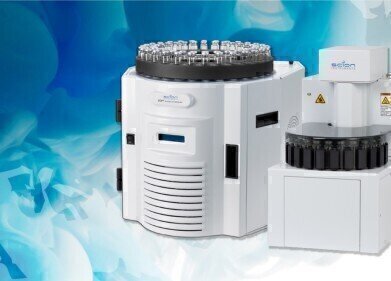Industrial News
Can Post-Traumatic Stress Disorder Be Treated with Blueberries?
Apr 06 2015
Post-traumatic stress disorder (PTSD) is a serious condition that affects one in three Britons, according to one recent survey. It occurs after the subject has been exposed to a serious traumatic incident, such as a near-fatal accident, hazardous injury or sexual assault scenario.
Although anyone can suffer from the disorder, there are certain groups of people who are more prone to suffering from it than others, for obvious reasons. These include people with previous mental health issues, people who work in dangerous or risky situations, people with a background of poverty or home strife, those with a lack of education or those belonging to a minority, among others.
The symptoms of PTSD can manifest themselves in a variety of ways, which differ from patient to patient. However, they can include:
- Recurring flashbacks of the incident
- Emotional numbness
- Difficulty in concentrating
- Difficulty in sleeping
- Irritable outbursts
- Pessimistic outlook on life
- Reluctance to talk about the incident or to confront people, places or objects which could trigger memories of the incident
Suffering from any or all of these can seriously inhibit the ability of the subject to function in social situations. As such, it is a debilitating condition which doctors and scientists are still searching to alleviate and cure.
Current Treatments
Cognitive behavioural therapy (CBT) and other types of psychological treatment are often deployed in order to combat the effects of PTSD. However, the only current medicinal treatment that is widely approved by governing boards of medicine are selective serotonin reuptake inhibitors (SSRIs), a form of antidepressants.
SSRIs work by interfering with and increasing levels of chemicals in the brains, called neurotransmitters, such as serotonin and norepinephrine (NE). While increased levels of serotonin are desirable to curb the symptoms of PTSD, increased levels of NE are an unwanted side-effect of the treatment which can actually hinder its success rate. As a result, the efficacy of SSRIs is often negligible.
A Natural Solution
There may be hope for the condition in the form of a natural treatment. Superfoods have long been hailed as vastly beneficial towards maintaining human health and battling disease because of the high levels of proteins, vitamins, minerals and phytochemicals they contain. Because of this, they can be instrumental in not only helping us keep healthy but actually fighting against harmful diseases and afflictions.
Recently, a team of scientists at North Carolina State University in the USA isolated one of these properties of walnuts – the phytochemicals – to better analyse their beneficial effects. This article, Cracking Open the Health Benefits of Walnuts with Countercurrent Chromatography, explores this investigation in more detail, outlining the benefits and explaining how chromatography played a part in understanding them.
Now, another superfood has been touted as something of a cure-all. Blueberries have often been cited as having cancer-preventing properties, but a new study by Louisiana State University has sought to demonstrate they can help with PDST, too. By feeding PTSD-modelled rats a variety of diets, some infused with blueberries to the tune of 2%, the scientists were able to produce encouraging results.
Those rats which received a control diet free from blueberries showed a predictable increase in both serotonin and NE levels, meaning the control diet was not so effective. However, those with 2% blueberry diets showed marked levels of serotonin increase, without the undesirable NE spikes accompanying it. Such studies are the first tentative steps in showing that a superfood may be even more super than previously thought – and give sufferers of the syndrome hope for future treatment methods.
Events
Jan 20 2025 Amsterdam, Netherlands
Feb 03 2025 Dubai, UAE
Feb 05 2025 Guangzhou, China
Mar 01 2025 Boston, MA, USA
Mar 04 2025 Berlin, Germany












